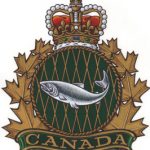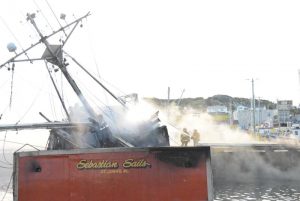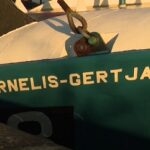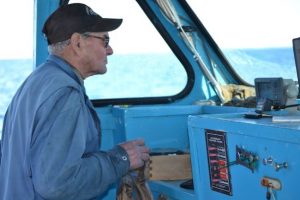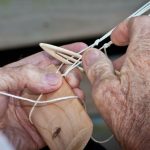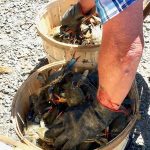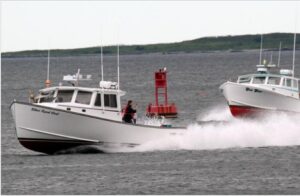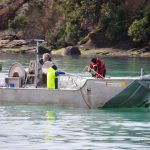Tag Archives: Economy
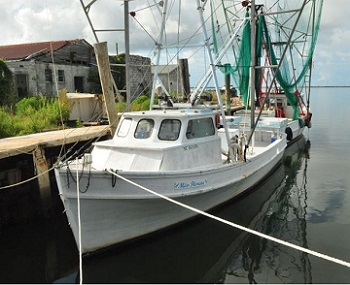
Partial Bogue Sound shrimp trawling ban will have impacts on watermen, economy
Mike Norman, who owns a 35-foot boat and sells shrimp at Norman’s Shrimp in Salter Path, mostly in the summer, said the partial Bogue Sound shrimp trawling ban will have a significant impact, and he believes it’s just the beginning. “They (sports fishermen) got Bogue Sound this year and I guarantee you that in the next couple of years, they’ll get Core Sound and Straits and Adams Creek,” he said. “I’ve been doing this since I was 16 and I’m 61 now. My brother told me the other day I’m going to have to get a job. But that’s hard for a commercial fisherman.” >click to read< 17:58
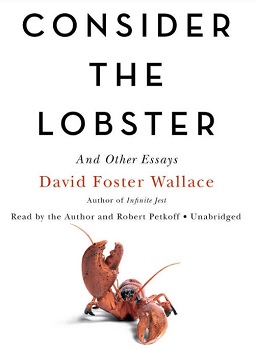
David Foster Wallace – Consider the Lobster
Originally published Aug, 2004. The assigned subject of this article is the 56th Annual MLF, July 30 to August 3, 2003, whose official theme was “Lighthouses, Laughter, and Lobster.”,,, For practical purposes, everyone knows what a lobster is. As usual, though, there’s much more to know than most of us care about—it’s all a matter of what your interests are. Taxonomically speaking, a lobster is a marine crustacean of the family Homaridae, characterized by five pairs of jointed legs, the first pair terminating in large pincerish claws used for subduing prey. Like many other species of benthic carnivore, lobsters are both hunters and scavengers. They have stalked eyes, gills on their legs, and antennae. There are dozens of different kinds worldwide, of which the relevant species here is the Maine lobster, Homarus americanus. The name “lobster” comes from the Old English loppestre, which is thought to be a corrupt form of the Latin word for locust combined with the Old English loppe, which meant spider. >click to read< 09;14
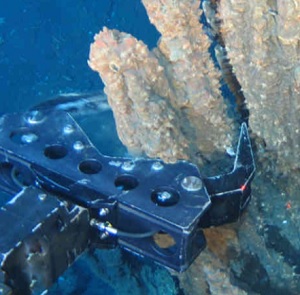
Seabed mining ban – a win for marine life, fishing and culture
The Northern Territory Government first declared a three-year temporary ban on seabed mining in March 2012 and has since extended it twice under both the Country Liberal Party (CLP) and Labor Governments. With the temporary ban due to expire in March, Territorians have made it clear that they want a permanent ban. It’s great to see today the Government listen and act on this important issue. “The Top End has some of the last healthy tropical coasts in the world. Seabed mining is like bulldozing the seafloor. It would decimate our marine life, pollute our waters, threaten our fishing and destroy places of cultural significance.” >click to read< 12:37
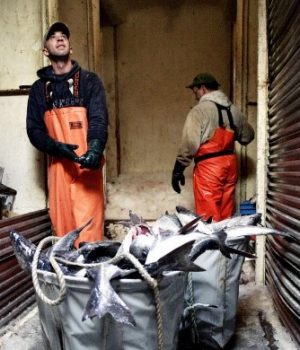
Stocks head for weekly loss as economy’s coronavirus pain deepens – Seafood industry hit hard
A federal report says the coronavirus pandemic has taken away about a third of the commercial fishing industry’s revenue. The National Oceanic and Atmospheric Administration says revenues from catch brought to the docks by commercial fishermen fell 29% over the course of the first seven months of the year. The report says revenues declined every month from March to July, including a 45% decrease in July. The NOAA report says the seafood industry at large has been hit hard by restaurant closures, social distancing protocols and the need for safety measures. >click to read< 09:15
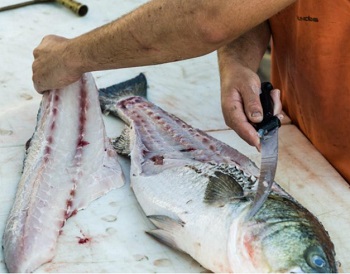
Menemsha Fish House Closes Up Shop
Menemsha Fish House, one of the Island’s largest wholesale seafood distributors has been shut down by its parent company, the owners confirmed Monday, as the pandemic continues to churn up rough waters for Vineyard fishermen and decimate the region’s seafood industry. But with the season ending, former operator Peter Lambos and Red’s Best owner Jared Auerbach said the economics of the wholesale market became impossible, forcing Red’s Best to officially close the business at the beginning of October. >click to read< 13:00
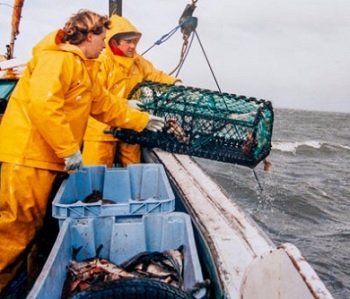
Stop treating fishing like a second class industry
It is true that fishing represents only a small part of our total economy, but the Government should not undervalue the thousands of jobs fishing creates not just on boats large and small, but in processing, logistics and food service. They are also at risk of ignoring the cultural and historical importance of fishing as part of our maritime heritage and our communities. The creation of this Trade and Agriculture Commission is to be welcomed and the NFU and its supporters congratulated for their successful campaign. >click to read< 10:53
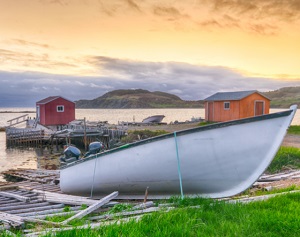
Resource Rich: Are You Sick of Being the HAVE NOT Province?
Newfoundland outports began as an act of defiance against the British rule. People moved to the coves and coasts, which are now more unique than anything I have seen in the world. We opted for a life of self rule and governance. A way of life that we chose rather than what could have been inflicted on us. We weren’t accepting the status quo back then. It’s time we rise and defy the status quo once again. Closing the fishery, three decades ago, meant 31,000 people out of work, overnight. That was the greatest devastation of all time to this province. It was a blow of massive proportion. So profound in fact, that we are still not over it. That’s about to happen again with our oil industry if we don’t take action now. >click to read< 12:50
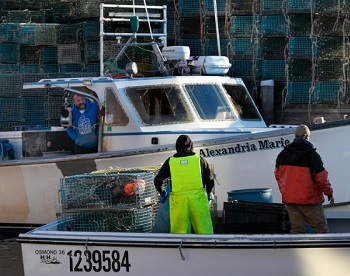
It’s time to open the economy back up! Maine Lobstermen Seek Ways To Prevent Financial Crash
Anti-glut tactics might include limiting days at sea, narrowing size limits or barring the catch of single-clawed lobsters to reduce the overall haul. In an online meeting Monday, Marine Resources Commissioner Patrick Keliher told Downeast lobstermen that he’s found no consensus on the best course of action. Lobsterman Jim Hanscom, of Bar Harbor, says he is wary of intervention by Gov. Janet Mills. “This governor scares me on a lot of levels, and the idea of her having the ability on shutting this fishery down or stopping dealers from buying, I think it’s just dangerous.” Keliher is scheduled to brief Mills on the issue Tuesday,,, >click to read< 10:40
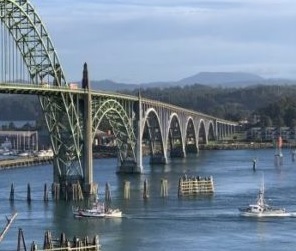
In Newport, a coronavirus outbreak spreads to local economy
Pacific Seafood ceased operations at all five of its Newport plants. The Oregon Health Authority said the outbreak is contained to Lincoln County and that risk to the public is low. But Newport Mayor Dean Sawyer said most of those who tested positive are locals. The town’s economy is hurting again without a major fish buyer and supplier. And businesses are shutting back down to try to slow the spread of the virus. “They live here, they work here, they’re community-based people,” Sawyer said. “And, of course, the problem with that is that people live and work with people that work in other industries.” >click to read< 12:16

Bad lobster season affects everyone in Cape Breton
At this time of year, the local fishing wharfs are feeling the effect of the coronavirus on their bottom line. Lobster fishers are facing the reality of an overseas market that has dried up causing prices to plummet to an all-time low.,, When lobster fishermen have a bad year, everyone suffers. Car dealerships can’t count on the fishermen up-dating their trucks at the end of the season. Those new trucks will remain on the lot. The local fishermen are a generous group who give readily to local causes. You can’t give what you don’t have. A bad season affects us all. What can we do to help out? Start by eating more lobster. When lobster is cheaper than ground beef, now is the time to get a good feed. Treat yourself to lobster every week until the season is over. Order a few extra dozen and freeze for the Christmas season. By Yvonne Kennedy, >click to read< 16:08
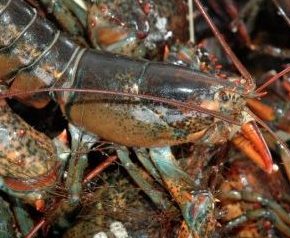
State of Maine: Lobstermen are feeling the pinch
Maine lobstermen are in a world of hurt, caught in a two-pronged assault on their livelihood. The pincer claw is the pandemic, causing their market to collapse. The crusher claw? That would be the latest lawsuit over whale rules.,, Even the elders in the fishing community are rattled. They are usually the ones who face fluctuations in the market with zen-like calm. It’s been down before, they say, and it will come back. Every year is not going to be a record-breaker. This time they’re worried. Younger fishermen who have gotten accustomed to record catches every year have taken on significant debt (bigger boats, newer trucks) and are freaking out. Jill Goldthwait >click to read< 11:09
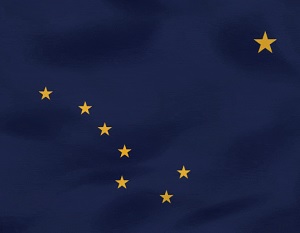
Oil, Fishing, Tourism: Alaska Economy Faces Triple Hit from Coronavirus
The U.S. state of Alaska is so far distant from the worst medical ravages of the coronavirus pandemic, but its economy is in critical condition. Alaska is especially vulnerable because it depends on oil, tourism and fisheries – basic industries that are reeling from the global coronavirus pandemic – and the state government gets most of its revenue from investment earnings that have now evaporated. “Alaska is experiencing a perfect storm, a most terrible trifecta, the hat trick from hell,” said state Senator Natasha von Imhof, co-chair of the Senate Finance Committee, at a hearing Saturday. “We are being hit on all sides with the stock market crash, oil prices plummeting and the tourism and fishing season all but idle.” >click to read< 09:04
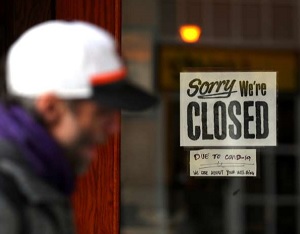
Coronavirus: Flattening the economy to control COVID-19 will have limited benefits at high costs
In 2016, U.S. economist Larry Summers, commenting on the release of a report titled The Neglected Dimension of Global Security: A Framework to Counter Infectious Disease Crises, said that “relative to its significance, there is no issue that gets less attention” than the risk of pandemics and epidemics.,, scrambling to catch up, the political authorities at the UN’s World Health Organization (WHO) and in towers of power around the world who underplayed the pandemic risk are engaging in a giant social and economic experiment: the temporary shutdown of the $100-trillion world economy to fix a real looming crisis they long ignored. And it is an experiment. Governments around the world are using the global economy as a test tube for science and behaviour theories that the COVID-19 pandemic can perhaps be managed and controlled by imposing draconian limits on most economic activity. >click to read< 13:31
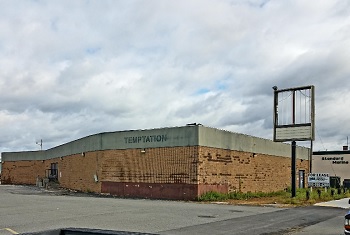
An opinion letter from Barnacle Bill: New Bedford Number One Fishing Port In America…..Oh How Far You Have Fallen
It is no secret that New Bedford is not the fishing port it once was. If it retains it’s title as the number one fishing port in 2019 then that just goes to show how bad things have gotten in the fishing industry as a whole. There is one thing that is certain the amount of money that is actually going to the people who catch the fish is at an all time low. Between quota lease and falling crew shares due to increased costs in the difficult environment the workers are getting less and the boat owners and fish lords are getting more. >click to read< 16:45
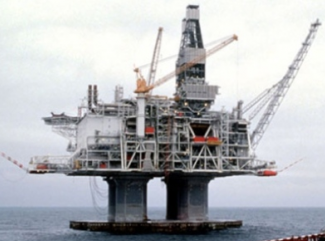
20 years later, Hibernia really changed us (and not entirely for the better)
John Gushue – A little more than 20 years ago, I was working on a CBC Television documentary series called East of Canada, which had the aim of covering 500 years of history in Newfoundland and Labrador. It was an ambitious undertaking, even with five one-hour episodes (and, believe me, there are not a whole lot of pictures to describe most of those years). In the spring of 1997, toward the end of production, there was an event that seemed perfect for visual contrast of where the place had been and where it might be going: the towout of the Hibernia platform. We had been chronicling the upheavals of history, the rise and fall of the codfish, the aspirations and dashed dreams of a place that never quite found its economic footing. click here to read the story 16:11
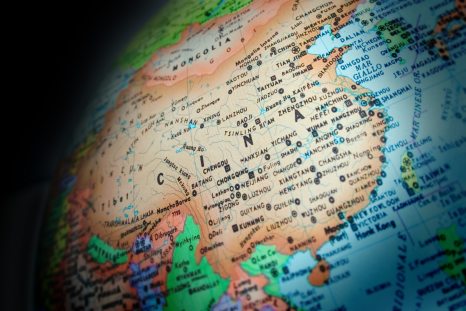
Caught In Alaska, Processed In China: Does Trump Make A Good Point?
When Donald J. Trump announced his candidacy in 2015 he created quite a stir with many of his statements. He spoke a great deal about securing borders, fixing the economy and especially the effects of China on the United States. Regardless of whether you agree with his plans and ideas of how to tackle these issues, you have to agree that these issues really do exist, especially the influence of China. The financial power of China overpowers not only American consumer good production, but also greatly affects the competitive of US fisheries. One of the major secrets to China’s fiscal strength is its over-abundance of very cheap labor. There is such a difference in labor between the US and China that it has greatly changed the way the US seafood industry works. Previously it was ideal to catch the fish in Alaska, fully process it in Alaska (i.e. filleting), and then ship it down to the mainland US where it would be consumed. Today it is just as common to catch the fish in Alaska, freeze it, ship it to China, process the seafood there, and then ship it to the mainland US for sale. This difference makes seafood producers millions of extra profits every year. This is common for all sorts of Alaskan seafood, including Alaskan Pollock, Pacific Cod, and especially Salmon. Read the article here 18:13
Newfoundland and Labrador Economy: Fishing on Solid Ground
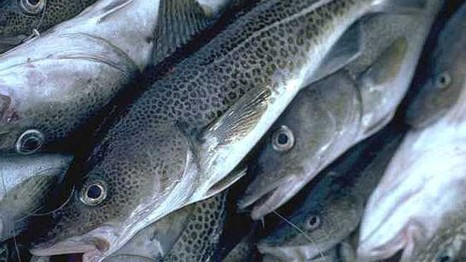 Amidst the recent volatility of oil and mineral production, the fishery has been a steadfast economic driver for Newfoundland and Labrador, particularly in rural areas. Many thought that the collapse of key groundfish stocks in the early 1990s was the death knell for rural Newfound- land and Labrador. Now, two decades later, even a trade as ancient as the fishery is showing that it’s capable of change in modern markets. “We fished mainly cod back then, but when the moratorium came on,,, Read the rest here 17:37
Amidst the recent volatility of oil and mineral production, the fishery has been a steadfast economic driver for Newfoundland and Labrador, particularly in rural areas. Many thought that the collapse of key groundfish stocks in the early 1990s was the death knell for rural Newfound- land and Labrador. Now, two decades later, even a trade as ancient as the fishery is showing that it’s capable of change in modern markets. “We fished mainly cod back then, but when the moratorium came on,,, Read the rest here 17:37


































